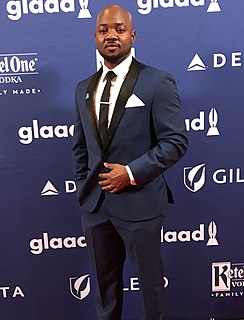A Quote by Dean Spade
More conservative advocacy work often encourages portrayals of trans people as people who deserve rights. Deservingness, of course, corresponds to national racial, gender and ability norms.
Related Quotes
One particular debate that I have seen play out again and again is whether trans people who have more traditional gender expressions or who "pass" more should be the ones who are represented. A recent advocacy guide focused on advocating around trans health care access produced by the largest trans advocacy organization in the US instructs readers that advocacy will be more successful if the message is delivered by people who pass as non-trans men and women.
When social movements engage in legal reform, they often mobilize images of people from their constituent population who most match national norms about what "deserving citizens" are like, and use those people as spokespeople and as lead plaintiffs in legal cases. This strategy requires that people who are experiencing intersectional harm - who are vulnerable through multiple vectors of demonization and marginalization - be further marginalized and disappeared by the advocacy.
Some trans people thought that in claiming that gender is performative that I was saying that it is all a fiction, and that a person's felt sense of gender was therefore "unreal." That was never my intention. I sought to expand our sense of what gender realities could be. But I think I needed to pay more attention to what people feel, how the primary experience of the body is registered, and the quite urgent and legitimate demand to have those aspects of sex recognized and supported.
There's a culture war in this country. Americans in recent years, as you know, have become more secular. They don't go to church as often. Bible reading, prayers in public are now frowned upon. And, of course, in addition to that, a lot of people have become much more supportive of LGBT rights. And in reaction to that, biblically conservative Americans feel that their faith is under assault.
We had so many milestones in America. We were on our way to universal healthcare. We had gay marriage. We were talking about gender fluidity and trans issues openly and discussing them with respect. It was almost to the point where educating people about transgender rights wasn't an issue. We were including trans people as a normal part of our conversations instead of seeing their presence as this shocking thing to the system. We forgot that those things can be taken away from you because there are people in the world that, for whatever f - king reason, can't live and let live.

































